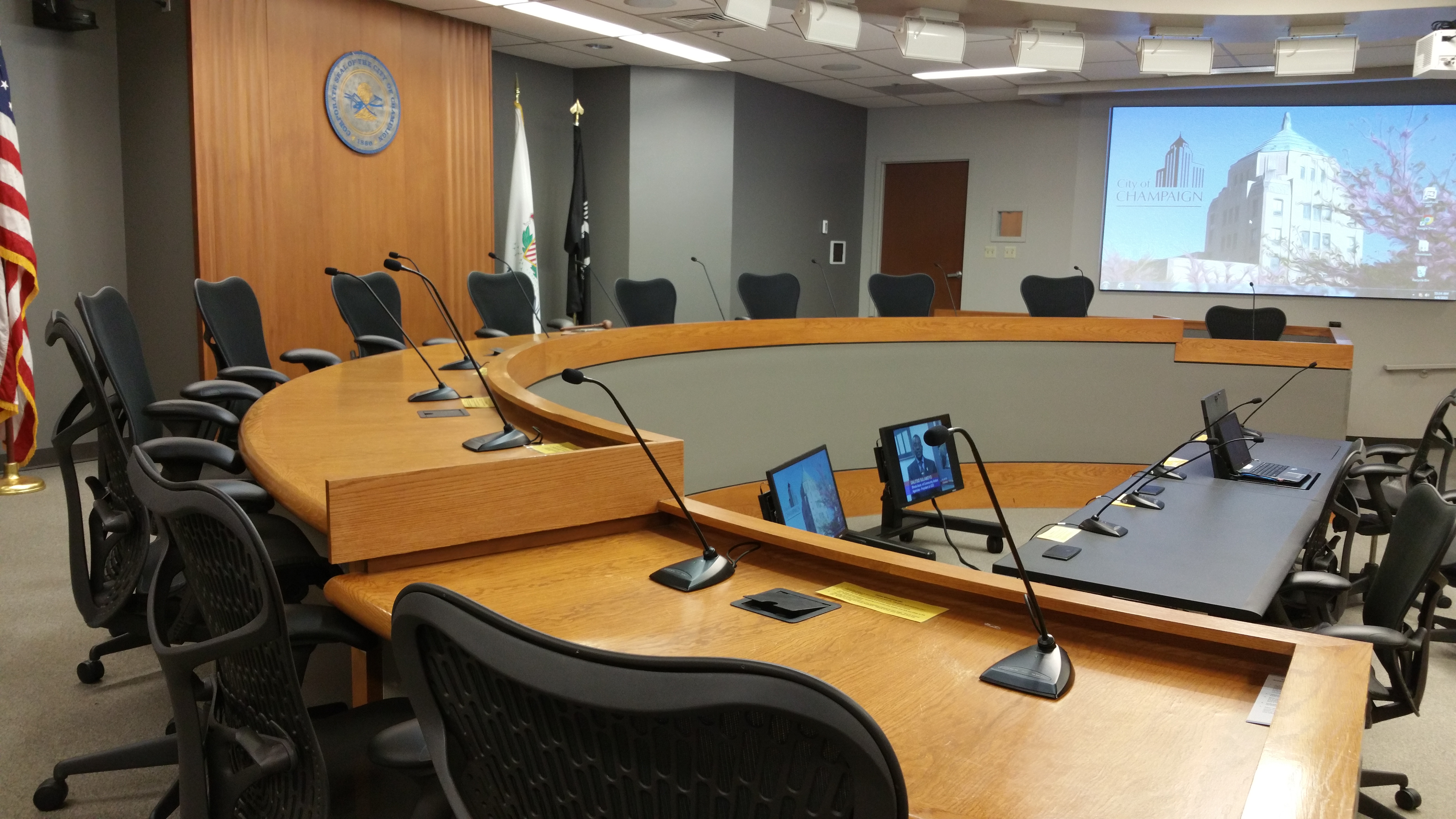City Council’s Vision, Guiding Principles, and Goals
The City Council sets the vision for the City and adopts guiding principles and goals to reflect that vision and guide decision-making at all levels of City government. The goal setting process builds Council consensus on policies and projects that impact City residents, businesses and the community as a whole. The City Manager uses the City Council’s vision, principles, and goals to set priorities, direct work activities, and allocate staffing and financial resources.
Vision Statement
Champaign is an inclusive community that welcomes all. City residents enjoy a great quality of life, first class educational opportunities, and easy mobility. Champaign is a vibrant community with an active city center and healthy neighborhoods. The City is designed for quality and sustainability and has a growing economy.
Guiding Principles
These principles serve as the foundation for how we lead our City government and deliver services to our community:
- We strive to ensure that all residents have an excellent Quality of Life.
- We will always be Open and Transparent in our actions and communications.
- We safeguard public resources and are Fiscally Responsible.
- We use a Data-driven Approach to evaluate City services and improve our response to community needs.
- We protect the well-being of future generations by advancing Environmental Sustainability.
- We collaborate with Community Partners to address issues of mutual concern.
- We are a Forward-thinking City that anticipates opportunities and trends that will transform our community.
2023-2025 City Council Goals and Key Projects
Our City Keeps Our Community Safe
- Increase City-Community engagement to build trust and grow partnerships for proactive crime prevention, focusing on youth, neighborhood residents, and communities of color.
- Develop a Community Safety and Wellness Program and implement strategies to address Downtown and neighborhood-based safety concerns.
- Implement a mental health emergency response initiative to address critical community behavioral health needs.
- Evaluate progress and identify ongoing funding for Community Gun Violence Reduction Blueprint activities, with a continued focus on the root causes of violence in the community.
- Improve traffic safety for pedestrians, cyclists and motorists through land use planning, infrastructure design, increased public education, and enforcement.
- Continue to prioritize Police recruitment and retention through proactive marketing and outreach.
Our City Invests in Economic Opportunity
- Update the City’s Economic Development Incentive Policy.
- Revise development and zoning codes consistent with incremental development concepts to increase flexibility and encourage affordable, sustainable, and neighborhood-scale reinvestment.
- Promote entrepreneurship, small and micro-businesses development, and job creation in low-to-moderate income areas.
- Determine the City’s role in strengthening the local workforce development ecosystem and identify strategies to support and promote existing programs.
- Continue to work with public and private partners to facilitate the MTD Terminal Expansion.
- Invest in redevelopment and economic growth in the South Downtown, Country Fair, and Round Barn areas.
- Ensure equitable access to economic opportunity and community resources through the development and implementation of a City-wide Equity Plan.
Our City Builds Safe and Sustainable Infrastructure
- Increase investment in City pavements, alleys, and public spaces, with an emphasis on designing for safety and long-term sustainability.
- Improve pedestrian and cyclist safety through sidewalk gap construction, intersection and sidewalk ramp improvements, and protected bike lanes.
- Continue to implement the Downtown Plaza Plan, identify funding for full construction and development of programs to activate the space for local business activity and community engagement.
- Complete a preliminary design of Neil Street Corridor improvements to increase safety and pedestrian connections between area neighborhoods and businesses.
- Fund and implement safety improvements to traffic signal infrastructure.
- Implement projects to address the backlog of City facility improvements and promote the City’s sustainability goals.
Our City Supports our Vibrant, Diverse Neighborhoods
- Develop an ongoing program to monitor neighborhood conditions and implement strategies to protect the wellbeing, vitality, and unique identity of the City’s neighborhoods.
- Build stronger connections with neighborhood groups by increasing resident involvement, diversity of representation, and active participation in neighborhood-based programs.
- Support the long-term sustainability of the City of Champaign Township STRIDES shelter and explore models to increase case management, supportive services, and long-term housing options for unhoused residents of the community.
- Strengthen partnerships to increase access to nutritious food across the community, with an emphasis on resource development in low-income neighborhoods.
- Expand programs to preserve the City’s housing stock and bridge the affordability gap between household incomes and escalating housing costs.
